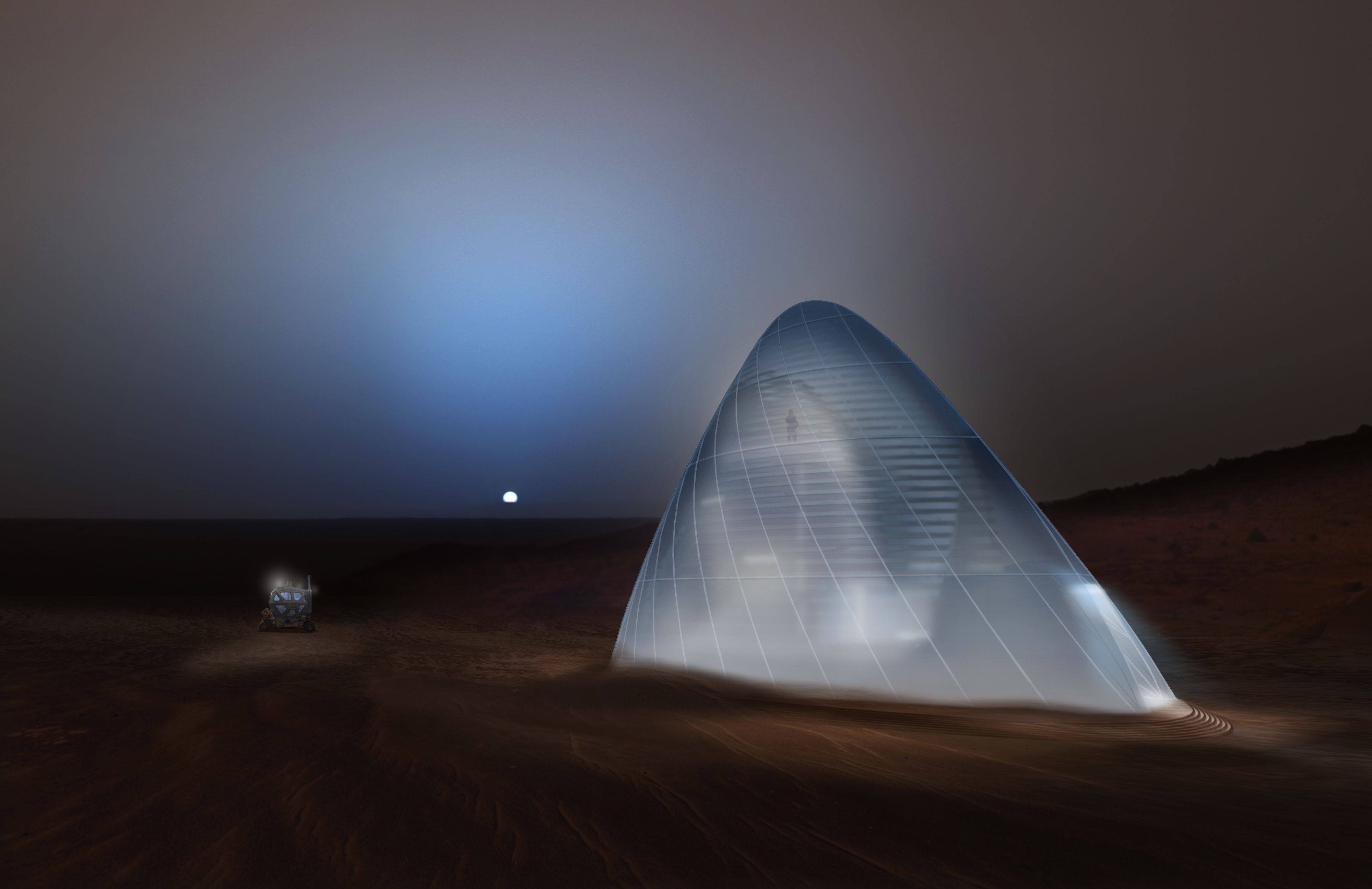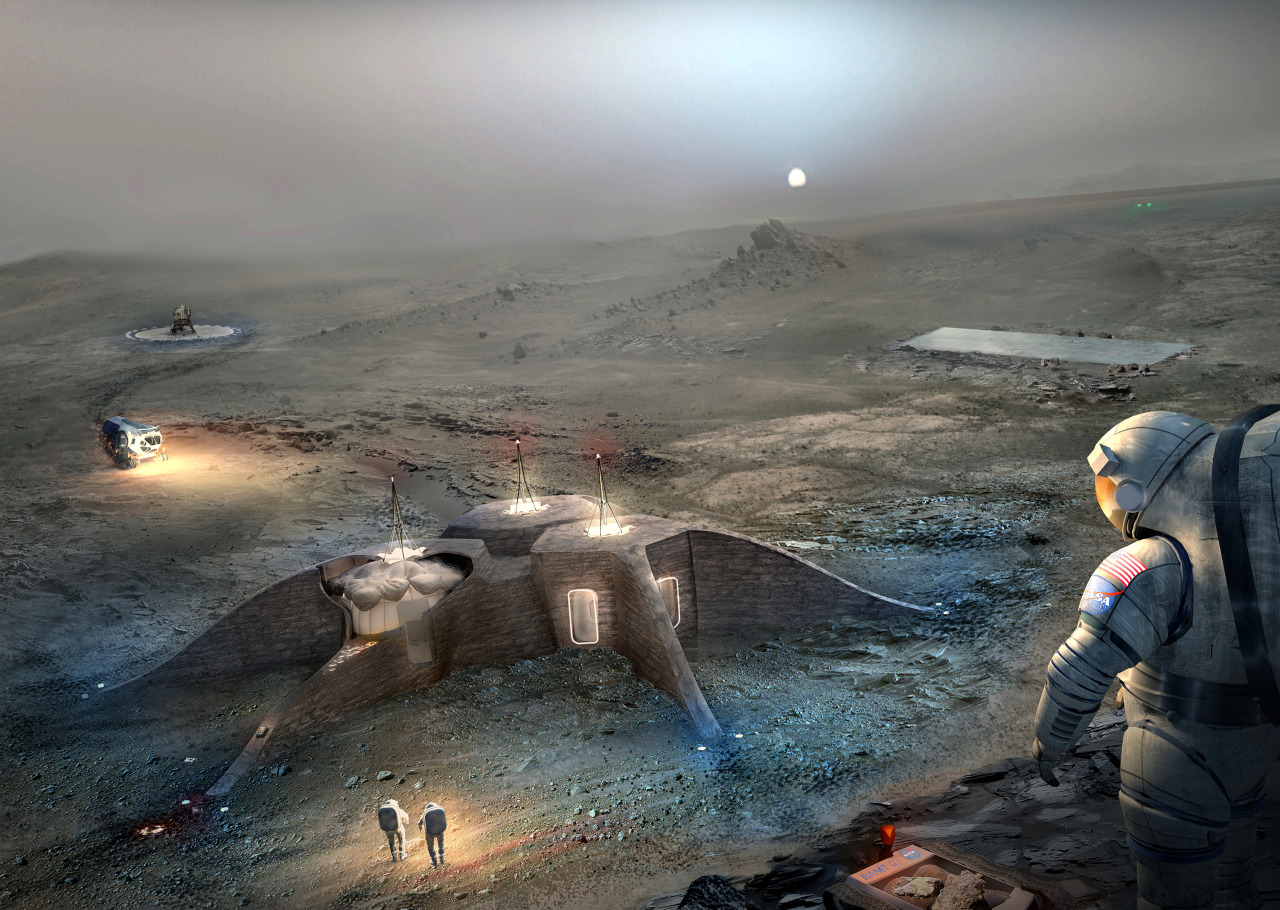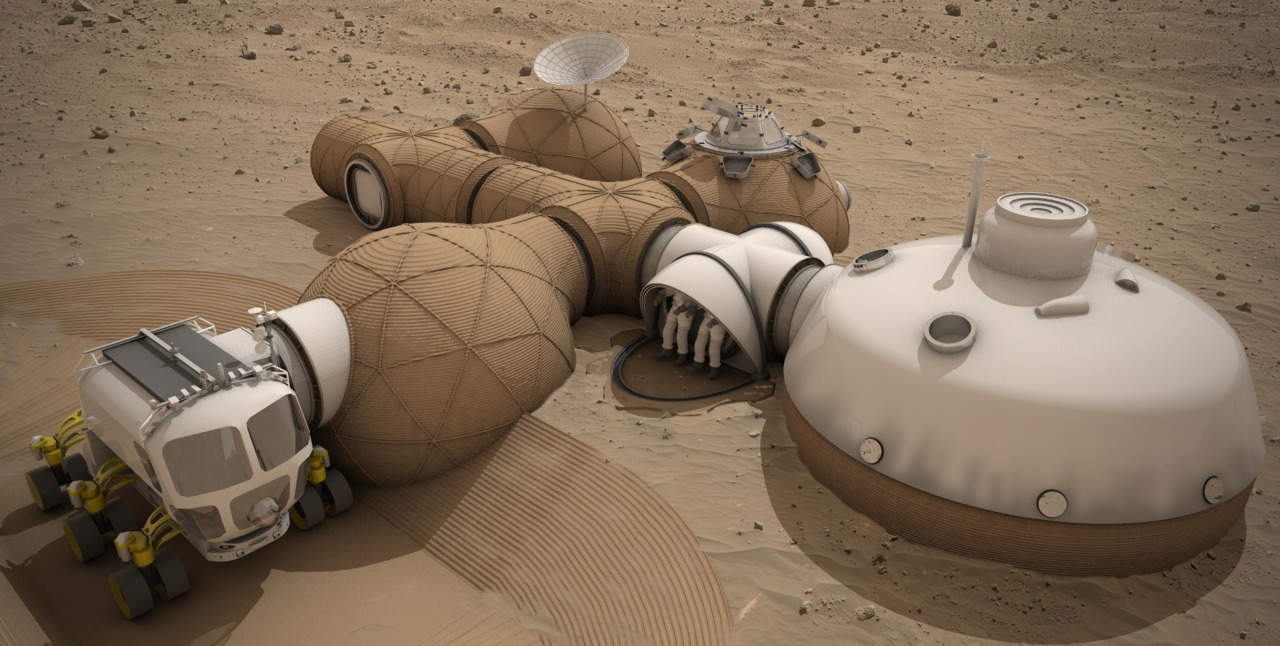NASA Picks Winners for 3D-Printed Mars Habitat Design Contest

NASA has picked the three winners in a design contest for 3D-printed habitats that could help future astronauts live on Mars.
The $25,000 first prize in NASA's 3D-Printed Habitat Challenge Design Competition went to Team Space Exploration Architecture and Clouds Architecture Office for the "Mars Ice House" design, which looks like a translucent, smooth-edged pyramid.
That pyramid would be built of Martian ice and serve as a radiation shield, protecting the lander habitat and gardens inside it, team members said. [3D Printing in Space: A New Dimension in Pictures]
The Mars Ice House's ribbed interiors and exteriors glow with diurnally determined hues at various times of sol (Martian day). In one illustration from the team's proposal, the outer shell is washed in Mars’ inky blue sunset, and in another it looks like it was dipped in the tea-tinged pink of the high noon on Mars.

The architecture encourages solitary reflective contemplation to nurture the long-term psychological well being of its inhabitants, according to the team's proposal.
Team Gamma got second place, and $15,000, for its vision of habitats supported by lengthy buttresses, while third place (but no money) went to Team LavaHive.
More than 165 submissions were received for the contest, which is part of NASA's Centennial Challenges program. The 30 highest-scoring entries (which you can learn more about here) were judged and displayed at Maker Faire in New York City on Sept. 27, NASA officials said.
Breaking space news, the latest updates on rocket launches, skywatching events and more!
"The creativity and depth of the designs we’ve seen have impressed us," Centennial Challenges Program Manager Monsi Roman said in a statement. "These teams were not only imaginative and artistic with their entries, but they also really took into account the life-dependent functionality our future space explorers will need in an off-Earth habitat."

The design contest is the first milestone in NASA's 3D-Printed Habitat Challenge, an effort to encourage the development of technologies that could enable dwellings to be built using 3D printers and locally available resources on Mars and other locales away from Earth.
Putting boots on the Red Planet is NASA's top long-term goal in the field of human spaceflight. The space agency aims to accomplish this ambitious goal sometime in the 2030s, and it's working to advance a number of technologies in addition to 3D printing to get the job done.
For example, NASA is developing the Orion capsule and Space Launch System megarocket to help get astronauts to deep-space destinations, and it's working on new systems to land super-heavy payloads softly on the Martian surface. And the agency's next Mars rover, which is scheduled to blast off in 2020, will carry a technology demonstration designed to generate oxygen from the Red Planet's carbon dioxide-rich atmosphere.
Follow us @Spacedotcom, Facebook or Google+. Originally published on Space.com.
Join our Space Forums to keep talking space on the latest missions, night sky and more! And if you have a news tip, correction or comment, let us know at: community@space.com.

